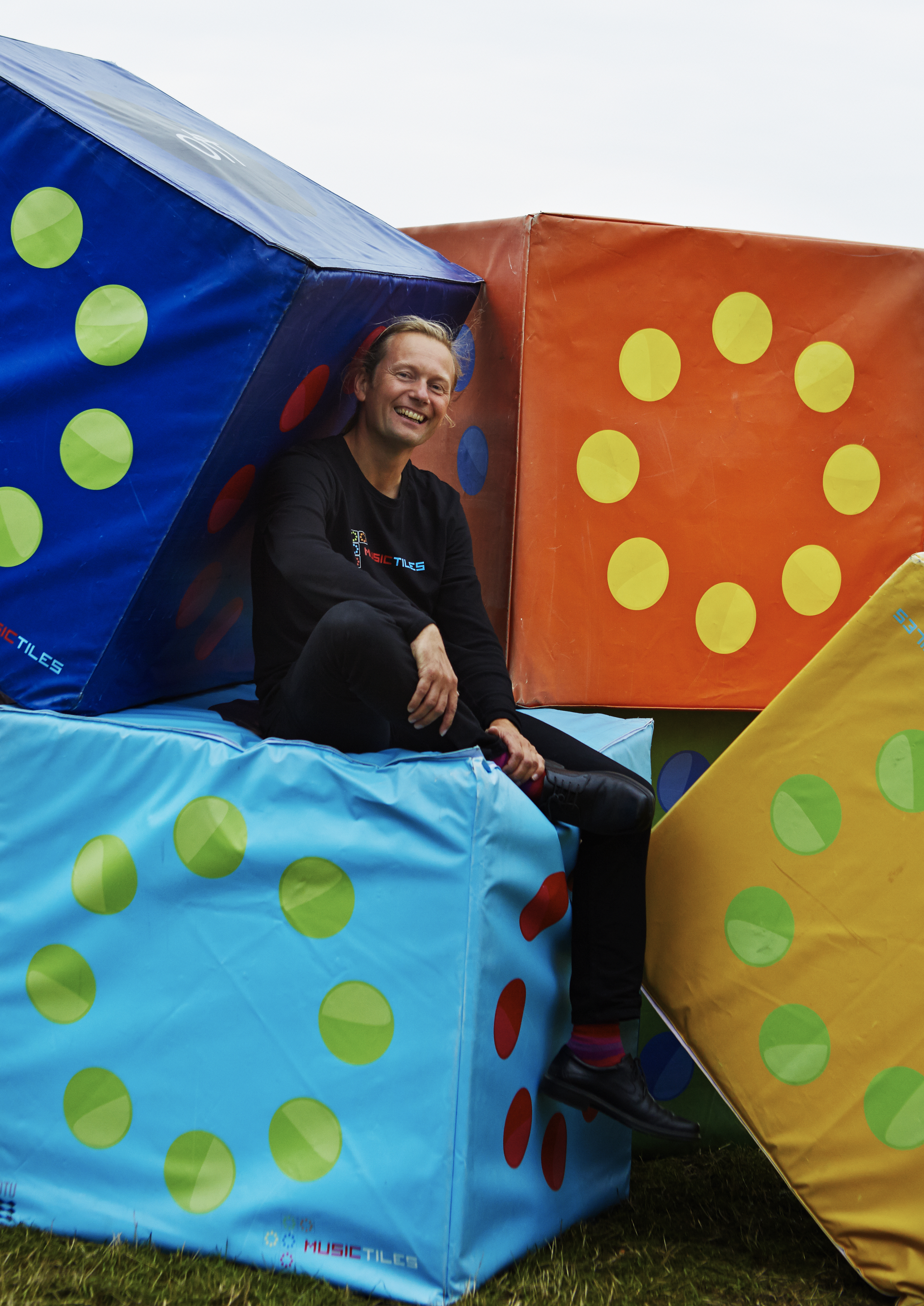Play keeps sickness at bay. This is the philosophy behind the interactive tiles developed by DTU Elektro’s Center for Playware and recently tested on elderly people in Gentofte Municipality. The tiles combine play with preventive physical exercise, helping to prevent falls and hip fractures in the elderly.
“Because the tiles have several built-in play features, exercising becomes fun. The games encourage you to participate in a play universe where your winner instinct takes over so you can give that extra 10%,” says Henrik Hautop Lund, professor at Center for Playware.
Every year, one in three Danes over 65 experience a fall, and in Gentofte Municipality alone this translates into an annual figure of 50 hip fractures. Each fracture affects the person’s mobility and social life and costs the state well over DKK 200,000. It therefore makes a lot of sense to perform balancing and leg strengthening exercises to prevent hazardous falls. The trials in Gentofte have shown that play has a positive effect on the exercise.
The tiles light up in different colours and are touch-sensitive. A typical game involves stepping as quickly as possible on the tiles that light up.
The study group exercised on tiles once a week for four months. The group was tested in six different exercises before and after the training programme, including balance and a six-minute walking test. The researchers noted improvement in all the exercises and 43% of the participants felt steadier on their feet following the trial period.
“The project has produced amazing results and made many in the test group very happy. Over 80% of the test group would liked to have continued when the four months were up”, says prevention officer in Gentofte Municipality, Torben H. D. Petersen.
The exercise tiles have now moved on to Billund Municipality in Jutland where they will be the subject of a similar trial.

“Mixing technology and the humanities”
Three questions to Professor Henrik Hautop Lund, Centre for Playware, DTU Elektro.
What is playware?
“Playware is a series of digital products that stimulates play and creativity. For example, the interactive tiles that turn exercise into a game or a piece of software enabling people to play music without mastering an instrument. So you might call playware intelligent play tools.”
What is so special about your interactive tiles?
“The tiles are designed so that a physiotherapist can easily adapt them to the individual user. Simply placing the tiles in a different pattern alters the game and exercise without the therapist having to learn a software program etc. And they are mobile—so you can take a box of tiles out to a patient, complete the exercise programme and then move on to the next patient.”
Why does playware belong at a technical university?
“Our job is to help solve society’s problems. To best achieve this goal, we need to understand user needs so we can tailor our solutions to them—which is why our playware research is people-based. Partly humanistic—examining play culture and human interaction with technology—partly technological, designing and programming prototypes. We also visit nursing homes and attend music festivals to test our solutions and better understand people’s needs.”
Learn more about playware in Henrik Hautop Lund’s talk ‘Play to Live’ kortlink.dk/cpyt